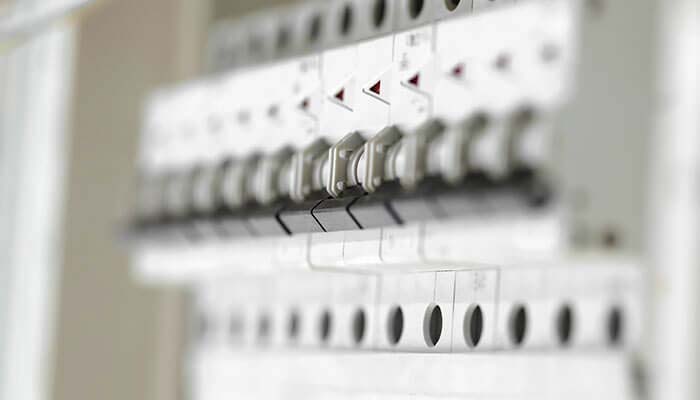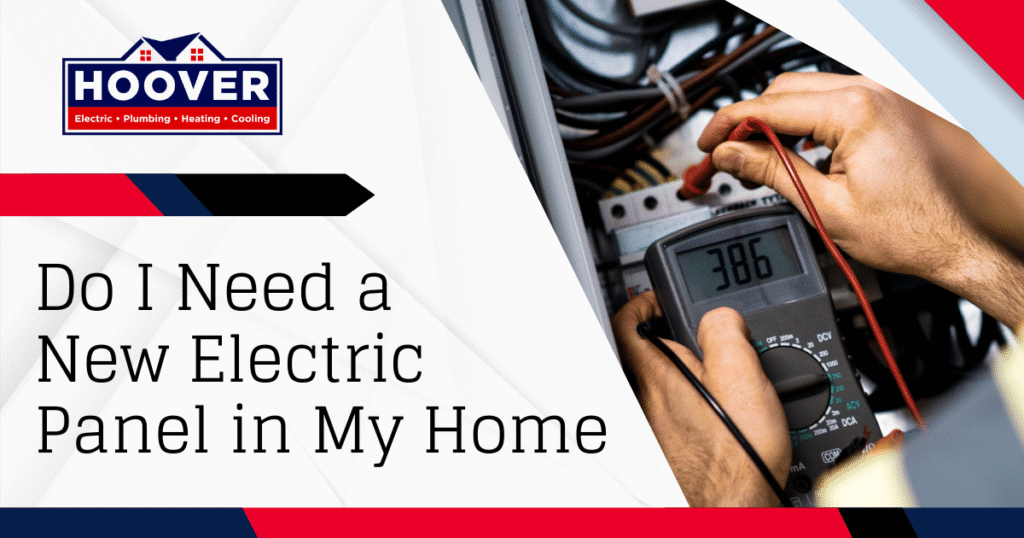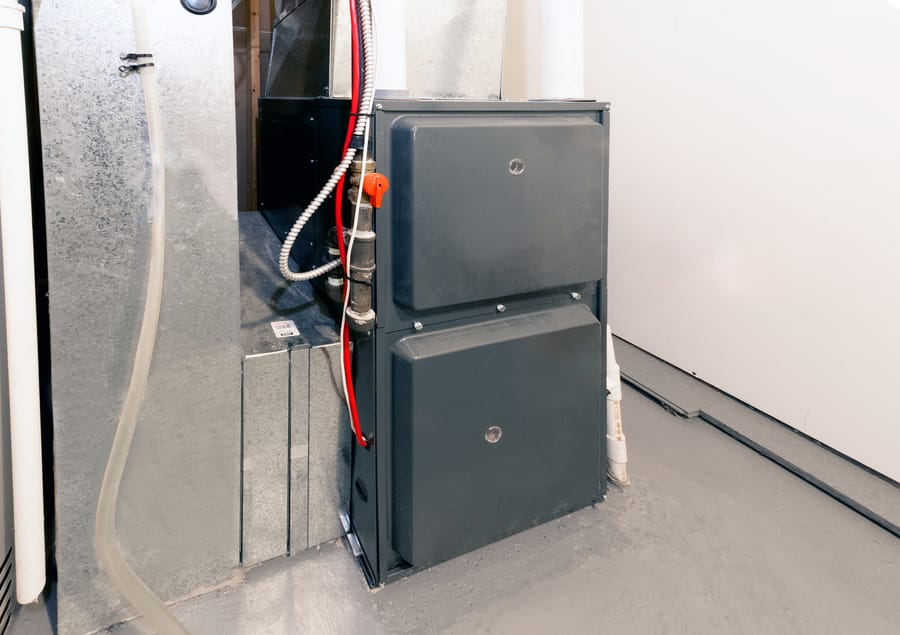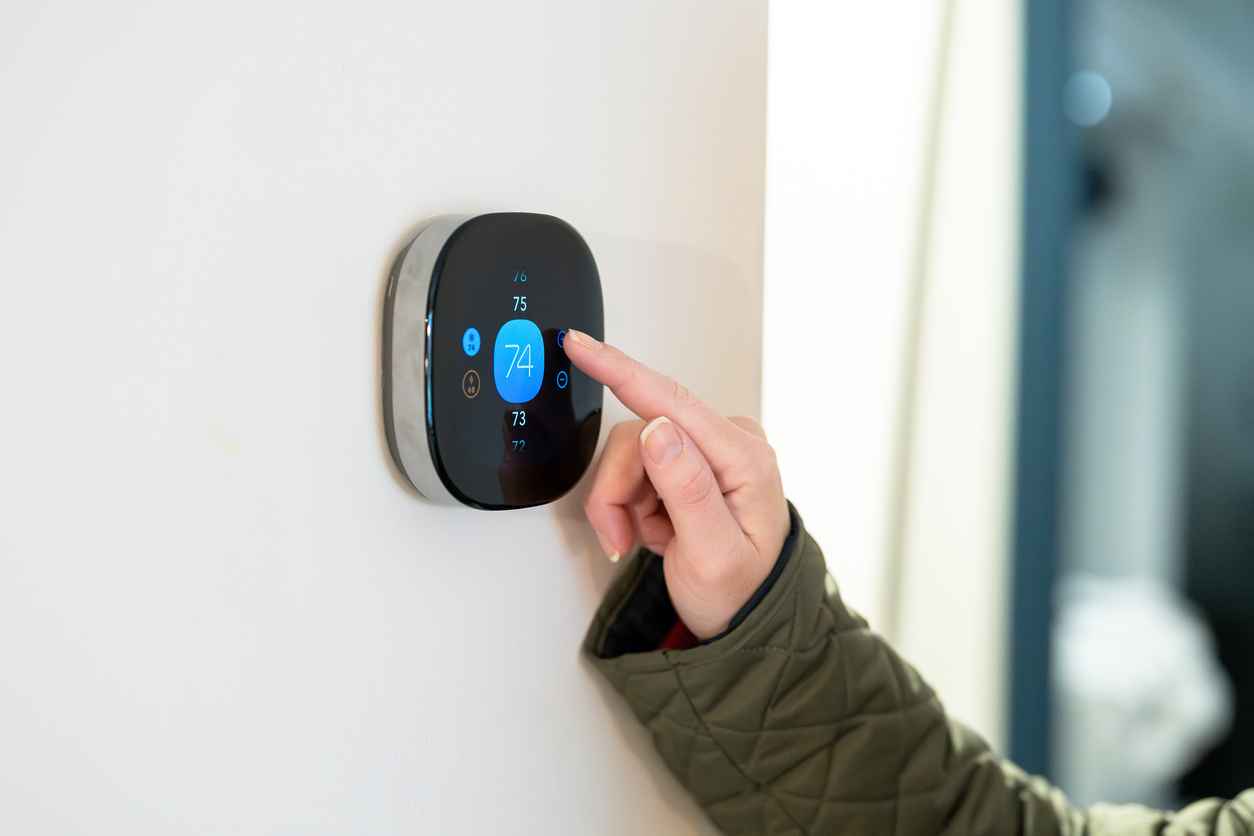Proudly Serving Southeast Michigan
Do I Need a New Electric Panel in My Home?


Do you need an electric panel replacement? This unassuming part of your home actually plays a big role, and when your electrical panel isn’t working properly, many other home services fail to function as they should. In this guide, we’ll explain the importance of your electrical panel, how to know if it’s time to replace it, and what you can expect from an electrical panel upgrade from the Hoover team.
Why Your Electrical Panel Matters
Before we can look at the signs of a malfunctioning breaker panel, we need to understand how this system works, why it’s so important, and the risks of ignoring an outdated or failing panel.
What does an electrical panel do?
Your electrical panel has two main functions: carrying electricity to your home’s many outlets and fixtures. Your electrical panel not only transfers this electricity around your home — it also protects it from circuit overloads. It does this by using breakers, which are safety devices that automatically switch off the power to certain areas of the home if the circuit becomes overloaded. This feature protects us from the dangers of electricity, such as electric shock and electrical fires.
Risks of an outdated or failing panel
By ignoring malfunctioning or outdated electrical panels, you face many risks to your health and safety, including electrical fires, system overload, and a failing electrical panel that will result in damage to any connected appliances.
Signs You May Need a New Electrical Panel
Now covered the role of your electrical panel and the risks of leaving a malfunctioning one unattended, how can you tell when there’s an issue? Having provided thousands of free estimates across the Clinton Township area, we’ve learned a few common signs that you need a circuit breaker panel replacement.
Frequent circuit breaker trips
A very common sign of a bad electrical panel is frequent circuit breaker trips. If you notice breakers tripping while using even a moderate amount of power (such as flipping on your dishwasher while using the stove, for instance), it’s almost always a sign of an issue with your electrical panel. While you can always flip the breakers back on, continuing to do this increases your risk of an electrical fire or another serious issue.
Flickering or dimming lights
If you notice that several of your lights are consistently dimming or flickering, particularly while running other appliances and fixtures, it’s likely a sign of an aging or malfunctioning electrical panel. While one light that dims or flickers is usually a sign of bad wiring on a specific fixture, flickering across multiple fixtures indicates an issue with the entire system. This is because lights often dim when the load on their circuit is increased, meaning your panel isn’t properly supplying the circuit.
Burning smells or scorch marks
This is a more obvious sign of an electrical issue. If you notice a burning scent in your home or black scorch marks on your electrical panel, it must be replaced immediately, as this indicates a very high risk of an electrical fire. The same goes for unidentified burning smells — if you can’t find the source, there’s a good chance your electrical problem is to blame, and you need repairs immediately.
Your panel uses fuses instead of breakers
Electrical panels that run on fuses instead of breakers are older and less reliable. In fact, many insurance companies will penalize you if you’re still using an outdated fuse box versus a breaker panel. While it’s an expense to replace your old fusebox for a modern circuit breaker panel, it’s more than worth the price when you consider how much safer it will make your home (and it’s even more achievable when you work with a company that offers flexible financing for electrical repairs).
You’re adding new high-energy appliances (EV charger, hot tub, etc.)
If you plan to add new appliances with high energy needs, such as an EV charger, hot tub, or a new heating system, there’s a good chance you’ll need a new electrical panel, too. Many new appliances require more amps than what your current circuit breaker can handle, leaving you at risk of an overload. To avoid this, add a new electrical panel to the budget when purchasing a new energy-intensive appliance.
Your home is over 30 years old
If your home is more than 30 years old (as many in Clinton Township are) and you’re not aware of any electrical panel upgrades in that period, it’s probably time for an upgrade. New panels are higher-capacity, more reliable, and far safer than old ones when you follow breaker panel best practices.
Upgrade Your Electrical Panel in Clinton Township, MI
If you’re looking for a team of skilled, knowledgeable professionals to help with this project, the Hoover team is here to help. Our technicians are fully licensed and insured and will arrive promptly and work efficiently to ensure your safety.
Whether you need a panel replacement, upgrades, or a simple inspection, we’re here to help. We offer free inspections and flexible financing, ensuring you can get this project done when you need it instead of taking the risk of waiting. Contact us to schedule a service appointment for your electrical panel today!
Frequently Asked Questions
Can I fix my electrical panel myself?
Unless you are a licensed, experienced electrician, you should not attempt to repair your own electrical panel. Even a small mistake can result in serious injury, an electrical fire, or worse, so it’s better to leave this job to trained electrical professionals.
Is it better to repair or replace an old electrical panel?
Deciding whether to repair or replace a panel comes down to the current panel’s condition and your current and future power needs. If the panel’s circuits are constantly tripping, causing lights to dim or flicker, or overloading your appliances, it must be replaced immediately. If it’s only having minor issues, isn’t too old, and you’re not planning to significantly increase your power usage in the near future, it may be acceptable to have it repaired instead.
What causes an electrical panel to fail?
Electrical panels get worn out from several factors, such as repeated circuit overloads, power spikes and surges from the electrical grid, or a short circuit caused by faulty or damaged wiring. Age also plays a role, gradually causing your electrical panel to be less reliable over time.
When You Want It Done Right
Call Hoover!
Our electrical, plumbing, heating, & cooling professionals offer all the services you need under one roof.


